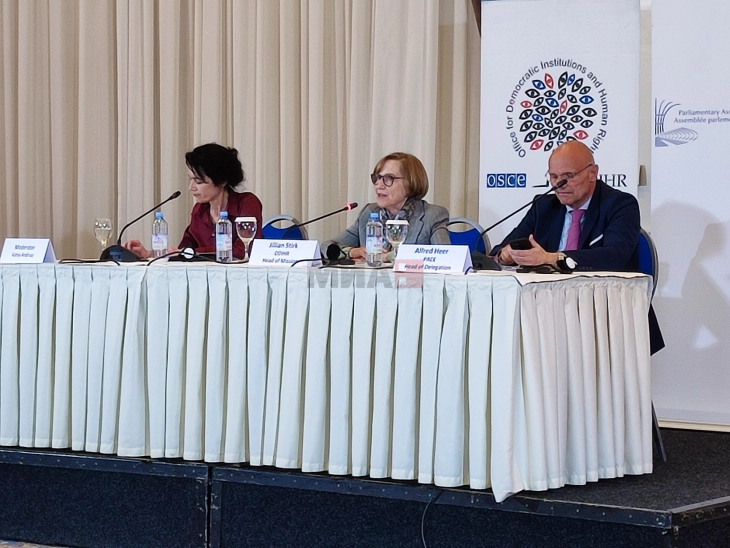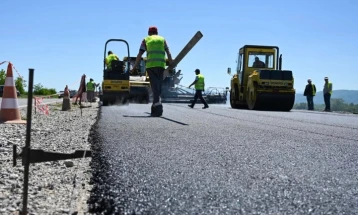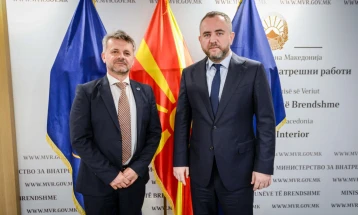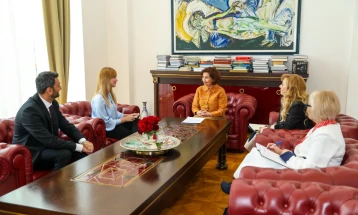International observers say presidential election competitive and overall well run, marked by legal gaps and negative rhetoric
- North Macedonia’s presidential election campaign was competitive and fundamental freedoms including media freedom were respected, but important areas of the presidential contest that included campaign rules, access to the media, and allocation of state funding are not regulated, undermining the key principle of legal certainty, international observers said in a statement on Thursday.
- Post By Ivan Kolekevski
- 16:01, 25 April, 2024

Skopje, 25 April 2024 (OSCE/MIA) - North Macedonia’s presidential election campaign was competitive and fundamental freedoms including media freedom were respected, but important areas of the presidential contest that included campaign rules, access to the media, and allocation of state funding are not regulated, undermining the key principle of legal certainty, international observers said in a statement on Thursday.
The joint observation mission from the OSCE Office for Democratic Institutions and Human Rights (ODIHR) and the Parliamentary Assembly of the Council of Europe (PACE) found that while the legal framework creates the basis for democratic elections, numerous gaps remain. At the same time, the link between political party affiliation on the one hand and campaign funds and media opportunities on the other resulted in an advantage for candidates associated with the main parties in parliament.
“This was a competitive election that took place in a peaceful and democratic atmosphere,” said Jillian Stirk, who headed ODIHR’s election observation mission. “However, the increasingly negative rhetoric was regrettable and reflected broader political fragmentation and ethnic division. At the same time, gaps in the election law and the hasty approval of legal changes did not address the long-standing need for legal reforms. Greater political will is needed to overcome these shortcomings.”
Some 1.8 million citizens were registered to vote in yesterday’s election. Despite the organization of two elections at the same time, ongoing staff shortages and a lack of funding, the election administration met all legal deadlines and generally enjoyed public trust. Observers assessed election day positively overall, and noted that voting procedures were largely respected.
As election day approached, the campaign became increasingly negative both online and offline, including personal attacks and occasional threats. Observers noted that some public infrastructure projects were announced by officials after the election date was set, potentially leading to the misuse of public resources in connection with the campaign.
"The presidential election was well organized and candidates could express themselves freely during the campaign, thus allowing voters to make an informed choice,” said Alfred Heer, who headed the PACE delegation. “While the election campaign was unfortunately tarnished by harsh rhetoric, this did not affect the general atmosphere on election day, which remained calm and without significant incidents."
While the recent legal changes improved some parts of the campaign finance framework, they failed to improve systemic shortcomings that together with limited resources for oversight bodies and other deficiencies significantly limited the effectiveness of campaign finance oversight. A lack of full confidence was noted in the effectiveness of campaign finance monitoring and accountability.
While North Macedonia has a diverse media landscape and media freedom is generally respected, online news media is largely unregulated, underlining the need for further reform. The public broadcaster covered all presidential candidates in line with legal requirements, and private media presented adequate information on the presidential candidates overall. However, a significant number of online news portals appeared to be created for the sole purpose of receiving state funds during election campaigns and, in some cases, channelling these funds to political parties.
The international election observation to the first round of the presidential election in North Macedonia totaled 234 observers from 33 countries, made up of 216 ODIHR experts, long-term, and short-term observers, and 18 from PACE.
Photo: MIA







